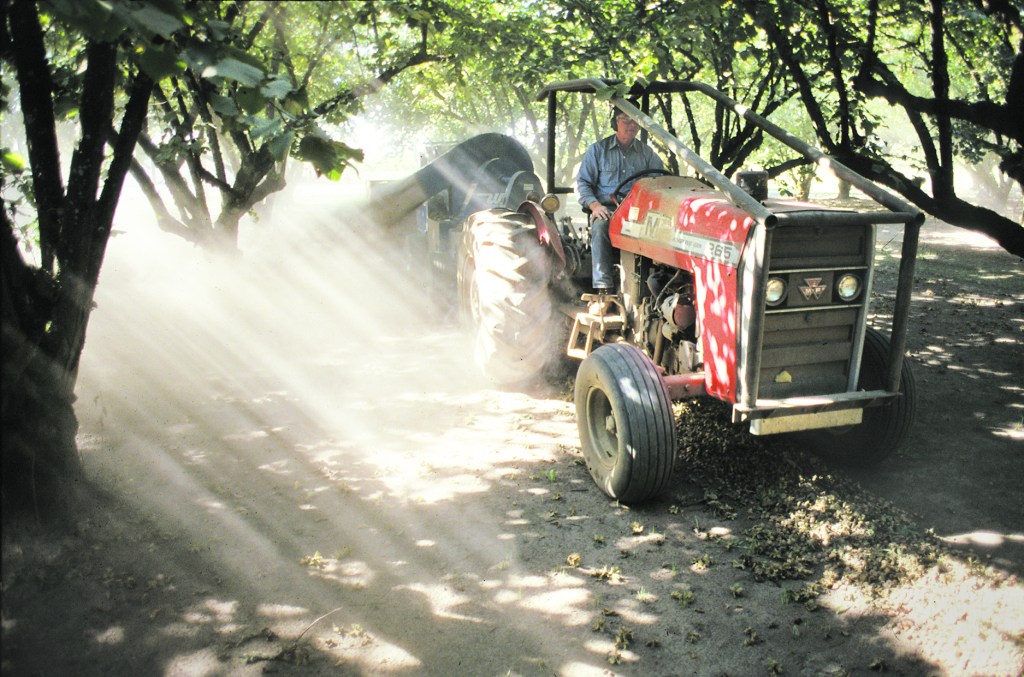Oregon farm labor standards board proposal scrapped for now
Published 1:51 pm Tuesday, June 3, 2025

- Oregon lawmakers will not move forward this year with a proposed agricultural labor standards board that would set wages and workplace conditions for farmworkers. (Staff file photo)
Bill designed to fill in information gaps about ag labor in the state
Oregon lawmakers will not move forward this year with a proposed agricultural labor standards board that would set wages and workplace conditions for farmworkers.
Instead, the House Rules Committee in the Legislature is considering an amended version of the proposal, which would require a study of farmworker experiences and the adequacy of existing labor protections.
Trending
Despite making the “hard decision” not to pursue the initial concept, the bill’s supporters believe it’s worthwhile to fill in information gaps about agricultural labor in the state, said Ira Cuello-Martinez, policy and advocacy director for PCUN, a nonprofit representing farmworkers.
“We believe there are a lot of misconceptions about farmworkers and what they experience in the workplace,” he said during a recent legislative hearing.
However, the Oregon Farm Bureau and other critics remain opposed to House Bill 2548 despite the change, fearing the study would generate “skewed data” aimed at bolstering the agricultural labor standards board in the 2027 legislative session.
“We see this report for exactly what it is: An attempt to set the stage to bring the original proposal back in two years,” said Lesley Tamura, board chair of the Columbia Gorge Fruit Growers nonprofit.
Proponents of the amended version of HB 2548 argue that the study would be helpful because farmworkers are often immigrants and people of color who don’t speak English, in addition to being excluded from certain federal and state labor regulations.
Those factors raise the possibility that farmworkers are experiencing retaliation, sexual harassment, pesticide exposure or other workplace hardships but not seeking recourse under existing laws, according to supporters.
Trending
“We recognize not all employers are doing bad things, but bad things are regularly happening,” Cuello-Martinez said.
Proponents of the bill added that statistics about farmworkers are often inconsistent across various federal agencies and fail to provide context for why injuries or other problems may occur.
Farmworkers are frequently employed by labor contractors rather than directly by growers, which can complicate the enforcement of labor protections as well.
“We need to understand these realities directly from the workers who are suffering them,” Kate Suisman, attorney for the Northwest Workers Justice Project nonprofit, said.
Critics of the bill’s amended version say they’re not opposed to more research in theory but believe this particular study is purposely meant to cast farmers in a negative light.
“This study seems designed for a pre-determined outcome,” with the goal of later reprising the agricultural labor standards board proposal, Amity famer Helle Ruddenklau said.
Specifically, critics say they’re troubled that Oregon State University — the state’s major agricultural research institution — would not be involved in the study, which would instead be performed at Portland State University.
As described in the bill, the study would give short shrift to the financial conditions and perspectives of farmers without explaining how the agricultural labor standards board would affect the industry, according to critics.
“The economic reality is dire but there is no way to capture that in the report,” Jenny Dresler, a lobbyist for the Oregon Farm Bureau, said.
Worries among farm organizations that the agricultural labor standards board concept will be resurrected have a precedent in the recent past.
In 2021, many of the same groups pushing for the current bill advocated for eliminating the farm industry’s exemption from paying workers higher overtime wages.
Although that legislation died in committee, lawmakers passed a similar bill the following year that phased out the agricultural overtime exemption over several years before fully eliminating it in 2027.
Now, farm groups fear the agricultural labor standards board is gaining a foothold before growers have adjusted to the higher overtime wages or stricter requirements for worker housing imposed earlier this year.
“Why can’t we wait to see the impact of these huge changes before we are targeted yet again?” Tamura questioned.







